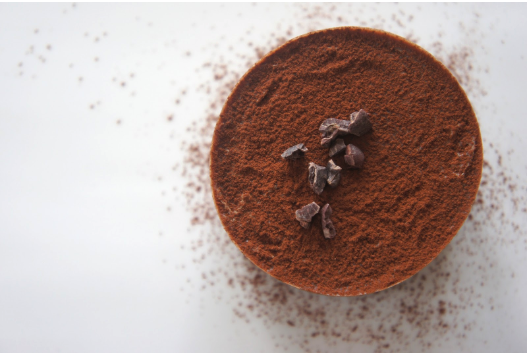fitness
Protein powder 101: How to Find the Right One for You in 2024
On This Page

Thinking about adding protein powder to your diet? Here's what you need to know to find the right one for you.
When you want to add more protein to your diet, protein powders are a natural choice for many people. However, choosing which type of protein powder can feel overwhelming. With so many options, how can you find the type that’s right for you? In this article, we’ll discuss the 6 most common types of protein powder, their benefits, things you need to consider, and how to find the right one to support your health goals.
Top 6 Types of Protein Powder
There are far more than 6 types of protein powder available, but these are some of the most widely used because of the type of protein they provide, along with other features like taste, accessibility, and compatibility with special dietary requirements.
1. Whey protein
What it is:
Whey protein is the most common type of protein powder. It’s derived from cow’s milk and is a byproduct of cheese production. Whey used to be discarded, but when scientists realized that whey was high in protein and could be beneficial, it became a sustainable way to produce protein supplements.
Whey forms – the three different versions you'll see in stores:
Whey protein comes in three forms. Each has slightly different protein content.
-
Whey protein concentrate: This is the most common type and also the most affordable since it’s the least processed. It contains between 60%-80% protein. The rest of the macronutrient breakdown includes fat and carbohydrates.
-
Whey protein isolate: The next most common type, isolate provides around 90% protein since it is filtered and processed to remove more of the fat and carbohydrates, leaving a more purified form of protein. Isolate contains much less lactose than concentrate, and many people consider this form to be fine for most who are sensitive (but not allergic to) lactose.
-
Whey protein hydrolysate: This is the least common type and the most processed form of whey. It breaks down the protein into peptides, which makes them easier to digest since the body can skip this step and put them to work more quickly. Because of the extra processing, whey protein hydrolysate typically has a more bitter flavor profile and is often more expensive.
Why you might love it:
Whey in all of its forms is a complete protein and includes all of the essential amino acids. It is also typically more affordable than other types of protein and provides more protein per in a smaller serving size compared to plant-based alternatives. Whey protein concentrate and isolate forms tend to have a neutral flavor profile and result in a smoother product, so they blend easily into shakes.
Why it might not be right for you:
If you are lactose intolerant or allergic to cow’s milk protein, whey is likely not a good option for you. It’s also not great for vegan or vegetarian diets. Depending on manufacturing, products often include added sweeteners or other potential allergens.
As a byproduct of milk, whey protein naturally contains dairy so unfortunately is a non-starter for many people who follow a dairy-free diet. And while it does mix well into a variety of recipes, if you are on a calorie-restricted diet, be mindful that it does provide additional calories.
Who it's best for:
Whey protein is best for athletes and anyone who isn’t dairy-sensitive and desires an easy-to-take, affordable complete protein source that is especially rich in branched-chain amino acids (BCAAs). Whey is often a go-to for people looking to build muscle mass, support healthy body composition, or consume protein powder as part of a carb-restricted food plan.
Care/of’s Whey Protein provides 18 grams of whey protein isolate per serving.

2. Plant protein
What it is:
There are many different types of plant protein, but most that are labeled as such include protein from more than one plant-based source. These blends often work together to provide amino acid profiles that lead to complete protein sources. They may include a variety of ingredients, but common protein sources include soy, brown rice, hemp seed, pumpkin seed, peanuts, or peas.
Why you might love it:
Plant-based protein blends are great for vegans or vegetarians who need one easy source of protein. The blends also usually have a more cohesive taste or texture versus a protein that comes from one source, and may be a better option for those who are sensitive to flavor or texture. Some brands include specific features in plant-based proteins, like sprouted grains or seeds, added prebiotics or probiotics, or other additional nutrients.
Why it might not be right for you:
Not all plant-based protein blends will be complete protein sources, so be sure to read the label closely if you’re seeking a blend that includes all of the essential amino acids. If you have allergies or sensitivities, read the labels closely, since some plant-based protein sources include common allergens like peanuts, tree nuts, soy, or gluten. Some people also struggle to digest plant-based proteins or may find the higher fiber content could lead to gastrointestinal upset or symptoms if they’re not used to consuming it.
Who it's best for:
Plan protein is best for athletes or people who want a single protein powder supplement, as well as those looking to increase protein that doesn’t come from a dairy source. When plant protein is sourced from a blend of peas, pumpkin seeds, and hemp seeds, the final product includes all of the essential amino acids and forms a complete protein. Peas and pumpkin seeds contain all of the essential amino acids except methionine, but hemp seeds provide this sulfur-based amino acid, along with cystine.
Care/of’s Vanilla Plant Protein contains 18 grams of protein per serving. It provides a complete protein source from peas, pumpkin seeds, and hemp seeds and also includes MCT oil for texture along with prebiotic fiber and digestive enzymes. It is third-party tested for purity and is gluten-free, vegan, non-GMO, and free from unnecessary additives and fillers.
3. Hemp Protein
What it is
Hemp protein powder is a form of a plant-based protein that is sourced from a single ingredient: hemp seeds. Hemp seeds are a good source of protein and many of the essential amino acids. It tends to be easier to digest than some other sources of plant protein.
Some people are concerned about hemp protein triggering a positive drug test, but hemp products that are produced for food-based consumption do not contain enough THC (the psychoactive component of cannabis) to produce a positive result, even if you consumed more than 10 servings per day. However, just because you can eat that much doesn’t mean you should – that would be a lot of fiber and would likely lead to quite a gut ache!
Why you might love it
Hemp is perfect as a plant-based source of protein if you are allergic to, or need to avoid, ingredients that are commonly found in plant-based blends. It’s also an almost complete protein source, so you’re not missing out on several vital amino acids. Plus, it’s especially high in arginine and glutamic acid. Hemp is also a source of omega-3 fatty acids and has 4 grams of fiber per 100 grams of protein powder, making it a good source if other protein sources tend to trigger constipation or if you also need to increase your fiber intake.
Why it might not be right for you
It is not considered a complete protein source because it contains very low amounts of leucine and lysine, so you need to include other protein sources, especially if you are vegetarian or vegan.
Be sure to read the label of your hemp protein, especially if you are choosing it because you are allergic to other protein sources. Some products can be made in a facility or on equipment with other allergens. Additionally, some products that contain only one protein source can still include other ingredients, like additives or sweeteners.
Some people also aren’t a fan of the hemp taste which is slightly nutty but with a bit of an earthy flavor. If you’re blending it into a protein shake with some fruit or vegetables, the taste profile will be less noticeable. If you’re looking for a protein powder that can be added to water or easily made on-the-go, hemp may not be the easiest choice.
Who it's best for
Hemp protein is best for vegans and vegetarians who are seeking a fairly comprehensive protein source with easy digestibility or anyone who wants a protein powder that also provides fiber.

4. Pea Protein
What it is
Pea protein is derived from peas, which are actually a legume, not a vegetable. It is one of the most hypoallergenic protein sources and is perfect for vegans and vegetarians. It is almost a complete protein source, but because it contains very little methionine (a sulfur-based amino acid), it is not considered adequate on its own. Pea protein does provide a higher amount of lysine and is a good source of plant-based iron.
Why you might love it
Peas are a good source of protein if you’re looking to build muscle and compared to other plant-based sources, they provide a good amount of BCAAs. When directly compared to whey protein in a study, both were effective for improving muscle composition and strength alongside high intensity training.
It’s an easier to digest protein source and has a fairly neutral flavor profile. While it’s not as smooth in texture as whey, it’s smoother and blends more easily than plain hemp. If you want to support satiety, pea protein can be filling and help balance appetite.
The Care/of Vanilla Plant Protein includes peas as one of the three protein sources.
Why it might not be right for you
If you are allergic to peas or sensitive to any ingredients in a standalone pea protein product, it won’t be a good choice for you. If you want a complete protein that provides higher amino acid content, you likely want a mixed plant protein or whey protein source.
Salt is used during the production process for pea protein isolate, so if you’re on a very salt restricted diet, pea protein might not be best.
Who it's best for
Pea protein is best for people who need a hypoallergenic, digestible form of protein that is also compatible with vegan or vegetarian diets.
5. Casein Protein
What it is
Casein is a protein found in milk, making it similar to whey. But casein and whey break down a bit differently. While whey is a faster-absorbing protein, casein is digested and used more slowly. Whey provides a faster source of protein energy and casein produces a more sustained-release source of protein which can be better for certain protein supplement needs. Casein is about 80% protein, similar to whey protein concentrate.
There are two types of casein: A1 and A2. Research is still ongoing, but A2 casein seems to be better for gastrointestinal sensitivity and may produce fewer digestive complaints.
Why you might love it
If you’re supplementing with protein before bed to support healthy body composition and not using it directly after workouts, casein may be more effective than whey protein since it breaks down more slowly.
Why it might not be right for you
Casein protein is less effective than whey at increasing muscle synthesis, so if you can digest a dairy-based source of protein, whey is likely more effective and more affordable. If you’re dairy-sensitive or allergic, casein is likely not a good option. Casein is a predominant milk protein in dairy and one of the more common culprits of dairy protein allergy.
Who it's best for
Casein protein is best for people aren’t dairy-sensitive and want a complete protein source with a longer-lasting impact and who desire to support a healthy body composition for a healthy weight balance.
6. Soy Protein
What it is
Soy protein is typically derived from edamame, which comes from soybeans. Soy protein is usually around 90% protein and the isolate form contains all of the essential amino acids, making it a complete protein source. While there’s some concern over soy and phytoestrogens, research shows that soy protein does not actually alter hormone levels.
Why you might love it
If you need a complete protein source derived from plants, soy protein is a single-source that may be more widely available. If you get the isolate form, it is easier to digest than some other types of plant proteins. It may be more cost effective than other forms of plant-based protein, although seeking organic, non-GMO sources may increase the price.
Why it might not be right for you
If you’re allergic to soy, it’s definitely not right for you, but if you struggle with general gastrointestinal conditions keep in mind that soy protein may be harder to digest or lead to more GI symptoms (soy protein isolate is typically gentler). Soy protein is also more processed compared to other types of protein and it may be challenging to find non-GMO versions since soy is one of the top genetically modified crops. Soy products are also heavily treated with pesticides, and it's challenging to remove all possible residual amounts in food products.
Who it's best for
Soy protein is best for athletes or people seeking complete plant-based and dairy-free protein that is easily accessible.
How to Use Protein Powder in Your Diet
Protein powder can be a great supplement. It cannot, however, replace all of the protein that you need from foods. Here are some ways that protein powder can make your everyday health routine easier.
As a post-workout supplement
Protein consumed just before or right after an exercise, especially when it is intensive or utilizes resistance training, can help increase muscle synthesis and support a body composition that is more balanced between muscle and fat. Protein used after workouts also helps to stabilize muscle composition in older adults and may accelerate muscle recovery hard training sessions.
Add protein powder to a shake, smoothie, or make your own protein bars for fast protein snacks that you can consume right after a workout. The best results occur when you consume protein within 30-60 minutes after training.

As a meal replacement
Protein powder can help make meals more filling or act as a healthy snack substitute. Many foods that are easy to take with you are high in sugar, carbs, or fat, and protein powder can provide a fast, no-cook meal when things are busy. This is great if you’re looking to support steady macronutrient digestion, support healthy weight balance, or simply want to make sure you’re getting enough protein.
Protein powder is a great addition to smoothies, smoothie bowls, and shakes.
As a snack
Many people don’t get enough protein each day, especially if they have higher protein needs, are athletes, or are older adults. Protein snacks are a great way to support healthy intake throughout the day.
Snacks like muffins, bars, or other baked goods are typically low in protein, but you can add protein powder to these for more macronutrient balance.
The bottom line
Protein powder is a great supplement if you want to up your protein intake. There are many types of protein powder and even more product options. When you’re choosing a protein powder, it’s always essential to read labels, consider the ingredients, and assess the quality of the product. Look for third-party testing for purity and be mindful of allergens and additives, as well as dietary concerns like vegan, vegetarian, or gluten-free options.
If you’re concerned about protein intake, it’s best to work with your medical provider or a registered dietitian/nutritionist to ensure that you’re meeting your macronutrient and overall dietary needs. Like other supplements, protein powders can be very helpful, but they can’t replace the essential amino acids and nutrients that come from eating a well-rounded, nutritionally balanced diet.



